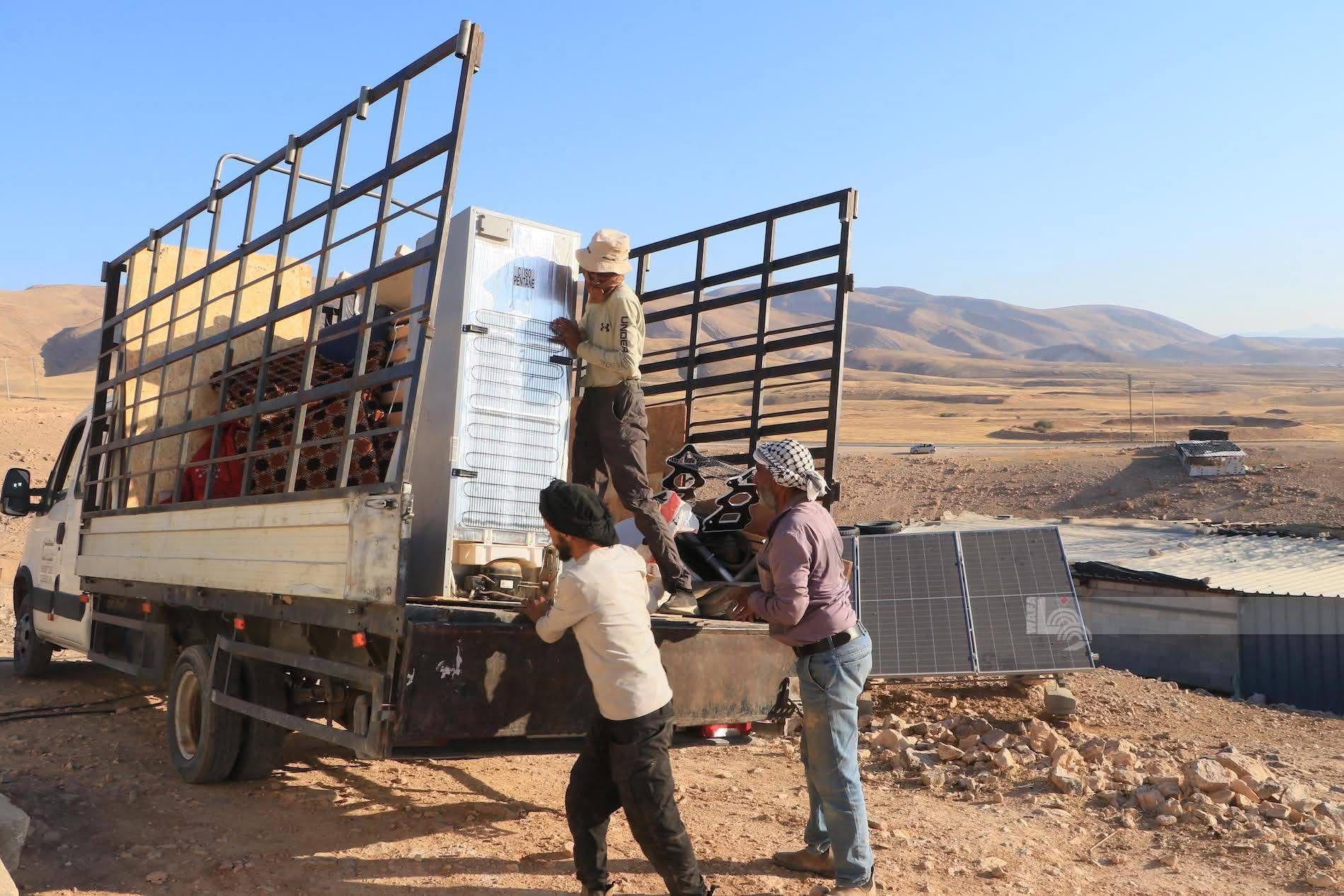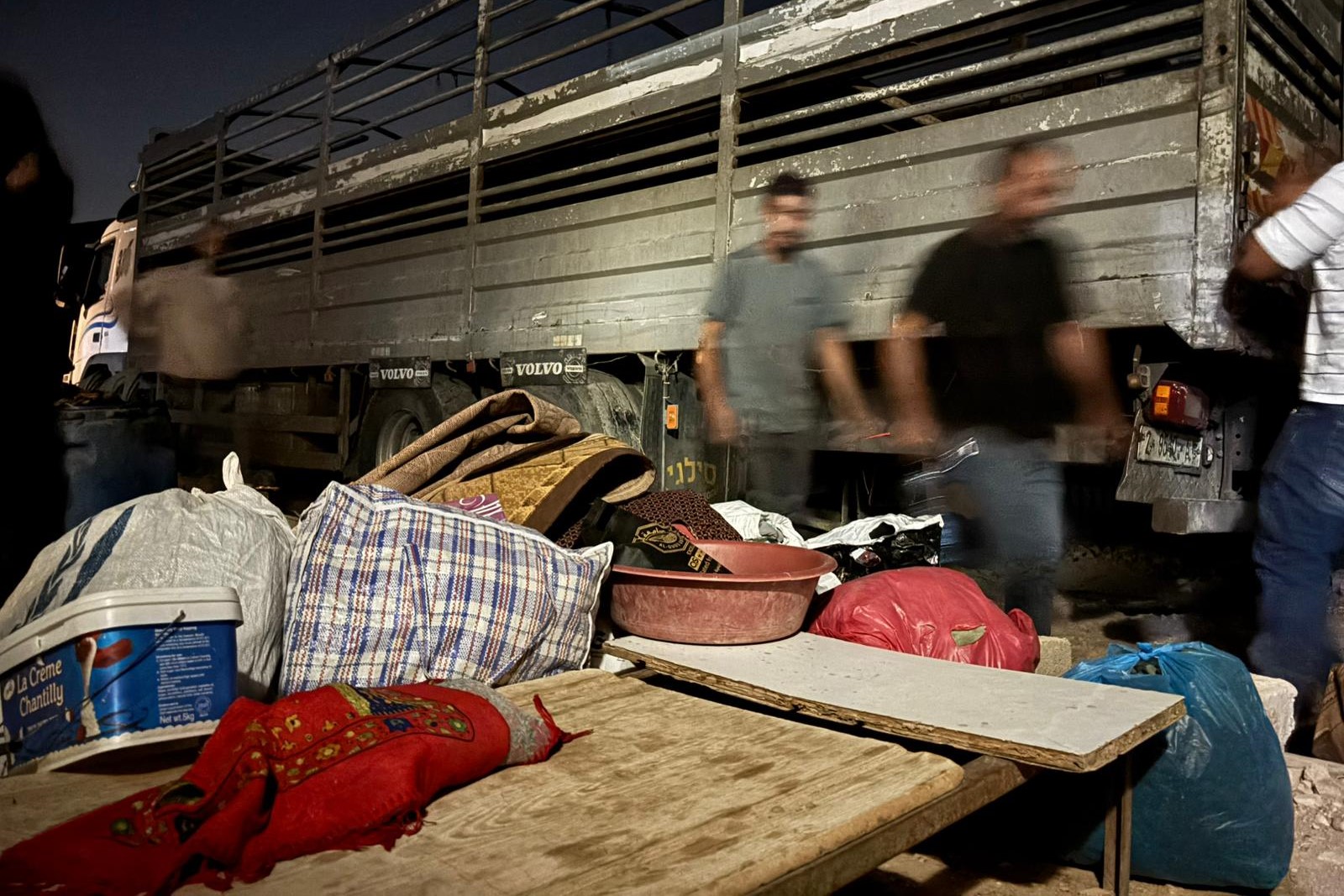RAMALLAH, October 15, 2009 (WAFA)- MASARAT is an ambitious Palestinian media project, funded by the European Union, which aims at promoting awareness of the resiliency and strength of Palestinian women and encouraging public debate of some of their lives.
An EU press release, said Thursday the project is implemented by Shashat, a Palestinian cinema NGO based in Ramallah, which organizes the annual Palestinian Women’s film festival in its 5th edition this year, and the national screening\discussion program “Films for All,” in addition to training and consultancies for the Palestinian filmmaking sector.
MASARAT project has three components – Productions, Screenings\Discussion and Broadcasts. Four films on Palestinian women’s lives by four Palestinian women filmmakers were produced, which are being shown in 16 cultural centers and 9 universities at a total of 58 screenings throughout the
The four films are directed by prominent Palestinian women filmmakers, and produced by Dr. Alia Arasoughly, who is the Project Director of the MASARAT project. The films include Ghada Terawi’s Golden Pomegranate Seeds, the folk-tale girl who remained silent in the face of tremendous oppression and the real women who decided to speak out; and the three older farming women’s tough pre-dawn journey from their fields to the vegetable markets telling how the earth is their companion and confidant, keeping them Far from Loneliness of Sawsan Qaoud; to Mahasen Nasser-Eldin’s Samia, the feisty, active and committed 71-year old whose struggle to remain in Jerusalem and to promote girls' education mark her personal and professional life; and then to the tender and innocent blooming of Dima Abu Ghoush’s First Love in the lives of several young women and the importance of the role of parents.
The films focus on women and young girls from diverse walks of life addressing the complexity of women’s lives in
The seven independent community TV stations are Farah TV in Jenin, Al-Fajr Al-Jadeed TV in Tulkarem, Gama TV in Nablus, Watan TV in Ramallah, Al-Quds Educational TV in Ramallah, Al-Ru`at TV in Bethlehem, and Nawras TV in Hebron.
The screening\discussion sites who are also involved in the TV broadcasts are the
Other screening sites in the West Bank include Al-Quds Open University in Salfeet, Palestine Vocational College in Ramallah, Young Women Christian Association in Jericho, Women for Life in Bidya, Al-Hoash Palestinian Art Court in Jerusalem, Bethlehem Peace Center, The Syndicate for Psychological Workers in Nablus, Palestinian Youth Union in Abood village, Kai la Nansa Women’s Society in Jenin Refugee Camp, Rural Women’s Society in Beit Fajjar, and Rural Women’s Society in Husan. In the Gaza Strip the screening\discussion sites include
The involvement of this extensive and diverse network of community, cultural and educational institutions in the West Bank and Gaza Strip as well as independent media outlets in the MASARAT project proves that they see the importance of using the media to address women’s lives in
Film and video productions are effective ways to approach women’s issues, as they engage people emotionally and critically. They are not dry like lectures and workshops and they reach audiences from diverse social, economic and educational backgrounds. Unlike lectures or workshops people are not afraid of appearing ignorant if they say the wrong thing, for everyone can have an opinion about a film. Films and videos are a unique and effective way of approaching women’s issues and educating about women’s lives by emotionally involving audiences in the discussion of these issues.
Culture is a catalyst for development. It empowers in situations of silence and can broaden horizons and constructions of identity through critical and independent thinking. Art can entertain, educate, challenge, and inform, creating and allowing a space for reflection, empathy, analysis, understanding, and social change, and expressing ideas ignored or marginalised by the dominant media. Such is the scope of the MASARAT project.










